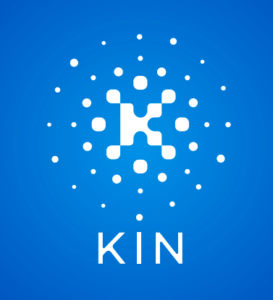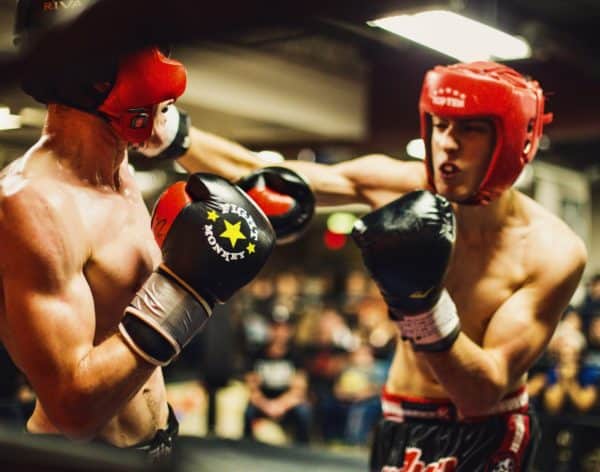Kik Interactive Inc. (“Kik”), a company based in Canada, raised close to $100 million selling Kin tokens during the initial coin offering (ICO) boom of 2017, making it one of the most successful ICOs. It first sold tokens to accredited investors through a SAFT (Simple Agreement for Future Token) and once Kin was fully functional and usable on the Kik app, it sold tokens to almost everyone that wanted to buy them through a crowdsale, including U.S. residents.
Kik’s ICO
 It appears that Kik bifurcated their sale to ensure compliance with the securities laws. One school of thought at the time was that SAFTs, which were sold to accredited investors were securities and such investors took on the risk of buying such securities. The money raised would be used to create tokens and an ecosystem wherein the tokens could be used. At that point, the tokens would be sold to everyone else as a consumer, rather than as an investor.
It appears that Kik bifurcated their sale to ensure compliance with the securities laws. One school of thought at the time was that SAFTs, which were sold to accredited investors were securities and such investors took on the risk of buying such securities. The money raised would be used to create tokens and an ecosystem wherein the tokens could be used. At that point, the tokens would be sold to everyone else as a consumer, rather than as an investor.
Kik complied with the law by selling a SAFT under an exemption – Rule 506(c) of Regulation D – that allowed them to sell tokens to accredited investors without having to register with the SEC. Before marketing their tokens to anyone else, Kik ensured that the Kin tokens were usable on its app. In addition, it only marketed Kin’s use case to potential buyers.
The Precursor to the Kin Tokens
Kik had experimented using virtual currency on its chat app since 2014, long before it created Kin. Kik’s users used the virtual currency and enjoyed using it. The Kin tokens were meant, in part, as a replacement for that currency.
Nonetheless, SEC staff (the “Staff”) concluded that Kik had violated the securities laws because it offered and sold Kin tokens without registering with the SEC or qualifying for an exemption. On November 16, 2018, the Staff notified Kik that it would recommend the Commission file an enforcement action against Kik for violating the sections of the U.S. securities laws that prohibited the offers and sales of securities without registration.
Kik’s Response
The Staff invited Kik to respond through a “Wells Submission” explaining why the SEC should not file an enforcement action against it. On December 10, 2018, Kik responded accordingly, arguing the SEC should not file an enforcement action against it because
- Kin tokens are currency, which is exempt from the definition of securities;
- The terms of the Kin token sale is not an “investment contract” under the Howey test; and
- Kik complied with the law in good faith given what they understood about the law at the time of the ICO
Kin is a currency
Kik first argues that the Kin tokens that it sold in its ICO are exempt from U.S. securities laws because it is a currency. The Securities Act of 1933 (“Securities Act”) does not include “currency” in the definition of security and the Exchange Act of 1934 (“Exchange Act”) specifically excludes currency from the definition of a security.
 A currency is either a store of value or a medium of exchange. Federal agencies have recognized virtual currencies and cryptocurrencies as currencies. For example, Bitcoin and Ether are considered currencies and William Hinman, Director of the SEC, stated that they were not securities.
A currency is either a store of value or a medium of exchange. Federal agencies have recognized virtual currencies and cryptocurrencies as currencies. For example, Bitcoin and Ether are considered currencies and William Hinman, Director of the SEC, stated that they were not securities.
Kik argues that Kin, like Bitcoin and Ether, serves as a medium of exchange and can be used to pay for physical and digital goods and services, including sunglasses and on over 30 third-party apps. Excluding trading activity on exchanges, Kin has more activity than Bitcoin or Ether.
In addition, because Kik believed Kin tokens are currency, they required every purchaser to undergo AML, KYC, and OFAC screening. Further, Kik’s independent auditor, KPMG, told them that Kin was “inventory” and Kik paid tax on the sales of Kin, which they wouldn’t have done if they were securities.
Kin doesn’t qualify as an investment contract
The SEC has applied the Howey Test to determine whether certain digital tokens sold in ICOs are “investment contracts,” including in the DAO proceeding, the very first proceeding where the SEC spoke out about ICOs.
Under Howey, there is an “investment contract” if “a person invests money in a common enterprise and is led to expect profits solely from the efforts.” In the Howey case, which gave rise to the test for investment contracts, investors were sold plots of land with orange groves and contracts under which the Howey companies would tend to the land.
There was an investment contract in the Howey case because investors invested money into the Howey companies, which tended to the land, and shared any profits that resulted from the efforts of the Howey companies.
In order to be considered a security under the Howey test, the security at issue must meet all four prongs of the test. Kik argues that Kin is not an investment contract it fails three of prongs of the Howey test.
Common enterprise
 In past proceedings against companies raising money with ICOs, the SEC gave little to no attention to whether a common enterprise existed and simply concluded that were was a common enterprise. Additionally, it did not identify what the common enterprise is between Kik and the owners of Kin tokens.
In past proceedings against companies raising money with ICOs, the SEC gave little to no attention to whether a common enterprise existed and simply concluded that were was a common enterprise. Additionally, it did not identify what the common enterprise is between Kik and the owners of Kin tokens.
Kik fights back on this issue and argues there is no common enterprise between Kik or purchasers of the Kin tokens. In support of its position, Kik cited a case where buyers purchased land in reliance on the seller’s promotional materials, which stated they would develop the land. The court found no common enterprise because the seller’s only obligation was to deliver title to the land to the buyers. Unlike in Howey, the sellers were under no contractual obligation to develop the land. Similarly, Kik argues that its only obligation to buyers was the delivery of the Kin tokens. As such, there is no common enterprise between Kik and the buyers of the Kin tokens.
Expectation of Profits
Kik also points out that it never led purchasers to expect profits, but rather marketed the Kin tokens for consumptive use only and ensured that Kin was usable before it was sold to the general public. In a Supreme Court case, United States vs. Forman, the Court held that shares of a co-op are not securities because they are purchased primarily for consumption rather than for the increase of value in the shares.
Kik argues that similar to the case in Forman, Kin was sold for the purposes of consumption. Moreover, unlike Forman, where the construction of the apartments had not been complete at the time of purchase, Kin was immediately usable when distributed to purchasers.
Unlike companies that settled enforcement actions with the SEC, which touted the potential increase in value of their tokens, Kik never marketed Kin for anything but consumptive use. In addition, Kik never made any promises that Kin would ever be tradeable on a secondary exchange.
Managerial or entrepreneurial efforts of others
Finally, Kik argued that even if purchasers expected to profit from the purchase of Kin, it wouldn’t be from the efforts of Kik.
In cases of commodities, courts have found that the final prong of the Howey test fails because the fluctuations are based on market forces rather than the efforts of the sellers. Similarly, Kik argues, Kin’s value would be based on market forces, rather than Kik’s entrepreneurial or managerial efforts.
Kik admits that it has spent significant time building the Kin ecosystem and will continue to do so, but emphasizes that its efforts alone are not enough to help the Kin ecosystem succeed. Rather, Kin must be integrated in other applications and users must use Kin in those applications. Over 30 applications, which Kik has no control over, have integrated Kin.
Kik also argues that it is sufficiently decentralized like Ethereum. In a public statement, Director Hinman stated that Ether was sufficiently decentralized to fall outside the scope of federal securities laws because the Ethereum Foundation is not providing essential entrepreneurial or managerial efforts, despite exerting significant efforts generally. Likewise, Kik argues that their ecosystem is similarly decentralized.
Kik made good faith efforts to comply with the law
Finally, Kik argues that it made good faith efforts to comply with the law as they understood it at the time of the Kin ICO.
In order to comply, it hired lawyers, including a general counsel, and an independent auditor. Based on their advice, Kik was confident that the Kin ICO were not sales of unregistered securities.
 Bitcoin, for example, had been around for 10 years, but the SEC never deemed the sale of Bitcoin to be the sale of securities. In addition, before the Kin ICO, the only guidance that the SEC had provided about ICOs was in the DAO Investigative Report. In that report, the SEC only stated that U.S. securities laws may apply to blockchain tokens.
Bitcoin, for example, had been around for 10 years, but the SEC never deemed the sale of Bitcoin to be the sale of securities. In addition, before the Kin ICO, the only guidance that the SEC had provided about ICOs was in the DAO Investigative Report. In that report, the SEC only stated that U.S. securities laws may apply to blockchain tokens.
The DAO token, which the SEC deemed a security, had characteristics that were fundamentally different from the Kin tokens.
Purchasers of the DAO tokens jointly contributed funds to invest in projects, they had the right to vote on which projects to pursue, and had the right to dividends.
Kin, on the other hand, was marketed as a currency that could be earned and spent, like Bitcoin. At the time of Kin’s ICO, not one single ICO filed a registration statement with the SEC.
Based on this, Kik argues, it, like other industry participants generally believed that tokens were not securities. If Kik had believed that selling Kin tokens in the United States would constitute the unregistered sale of securities, it would have simply barred United States citizens from purchasing the Kin tokens, just as it had barred citizens from China and Canada from making such purchases.
Because of Kik’s efforts in compliance, Kik argues that it would be unfair to retroactively punish Kik and categorizing Kin as a security which would only hurt purchasers. For example, Airfox’s token was delisted from exchanges once the SEC deemed the sale of their tokens a sale of unregistered securities. If Kin was considered a security, it would be similarly delisted. This would be unfair to developers that received Kin as compensation because they would no longer be able to convert Kin into U.S. currency. Further, it would be unfair to potential purchasers because it would be more difficult to purchase Kin.
What will happen from here?
The Commission will have to vote on whether to pursue an enforcement action against Kik. If it does, Kik has stated that it intends to fight the SEC. Regardless of the outcome of the case, if litigated, will give industry participants much-needed clarity how exactly securities laws should be applied to sales of tokens.
The Kik Well’s Response is available here.
Onki Kwan is a partner at Vanguardium Legal LLP, a San Francisco-based law firm that advises blockchain and technology startups. Her expertise includes entity formation, capital-raising, blockchain-related securities and regulation issues, commercial transactions, and employment, technology, product, marketing, consumer protection and privacy-related matters. In her previous role as a senior attorney and director at a public interest law firm, she launched and managed an SEC and FINRA compliant JOBS Act funding portal.



